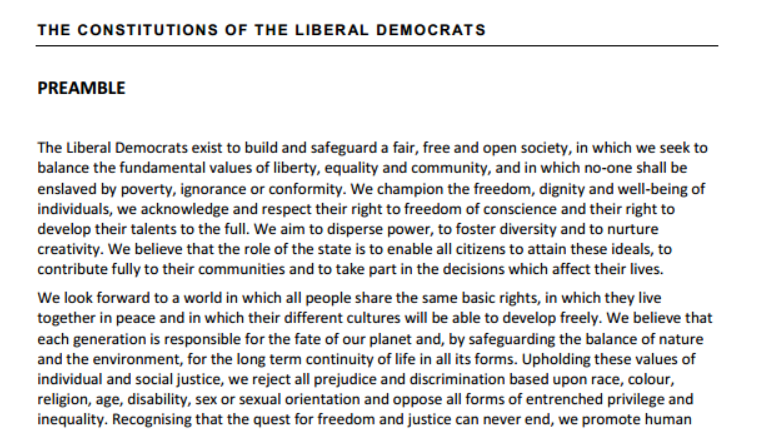Lessons from Rennard #2: the party needs to recognise three levels of misbehaviour

The question of what level of proof is required for party disciplinary action has understandably attracted a lot of attention during the Chris Rennard saga. However, the focus on that risks obscuring a related issue – the level of sanction available.
The more serious the level of sanction, the higher the level of proof should be required – just as criminal actions require a higher level of proof than civil actions as more serious consequences follow from being found guilty. Whether criminal or civil level of proof is needed for expulsion is currently being reviewed.
But one problem the party runs into is that for party disciplinary action, most of the time the only consideration is ‘should this person be expelled or not?’. The severity of that punishment means that – regardless of the level of proof required – the party also sets a relatively high bar for what sort of misdeeds need to have taken place to warrant it.
Even reducing the level of proof from criminal to civil levels (which the Liberal Democrats are now almost certain to do) does not deal with that aspect of the issue.
Partly at my instigation the English Party a few years ago introduced a wider range of more modest sanctions, such as banning people from holding office in the party, which could be applied in some cases. For example, if a local party treasurer regularly failed to file regulatory reports on time, expelling them from the party might be too harsh but banning them from being a local party officer appropriate. (Indeed, my involvement in instigating this change came from frustration at seeing several people who had behaved wrongly not facing sanction because the only sanction available was too severe.)
A sensible post-Rennard review of the party’s expected standards of its members and disciplinary rules should include expanding that range of ‘not serious enough for expulsion but serious enough for other sanction’ offences.
It would need to be clearly defined, so it isn’t used as an excuse to, for example, exclude out of favour troublemakers from a party committee, but it would also be the right thing to do.
(And the logic of this, of course, holds whether you think Chris Rennard would have fallen into this category himself or not – but the issues his case raise are an opportunity to think about this issue whatever your views on his case.)
See also Lessons from Rennard #1: don’t judge Presidential candidates by their TV appeal.
Leave a Reply